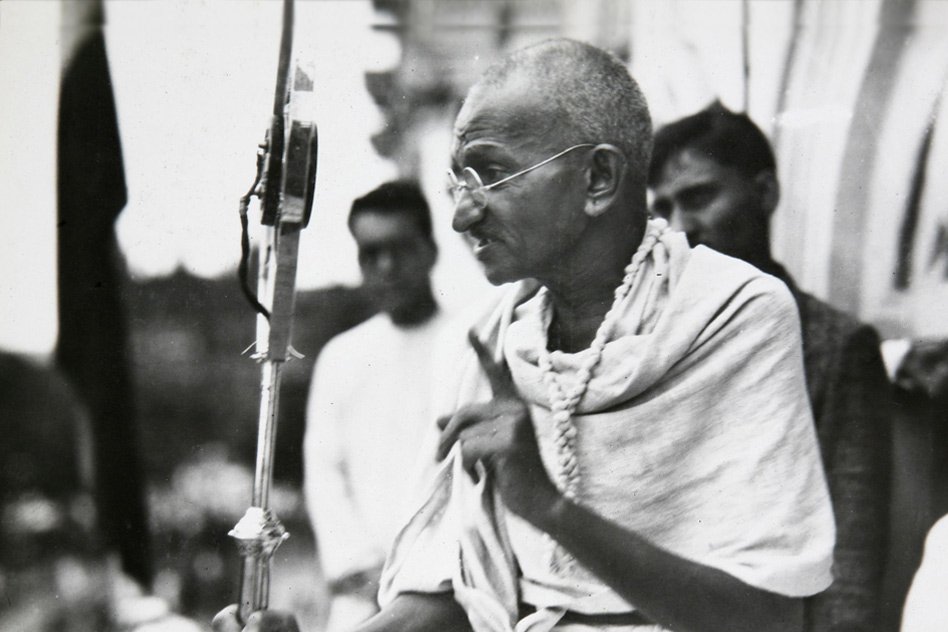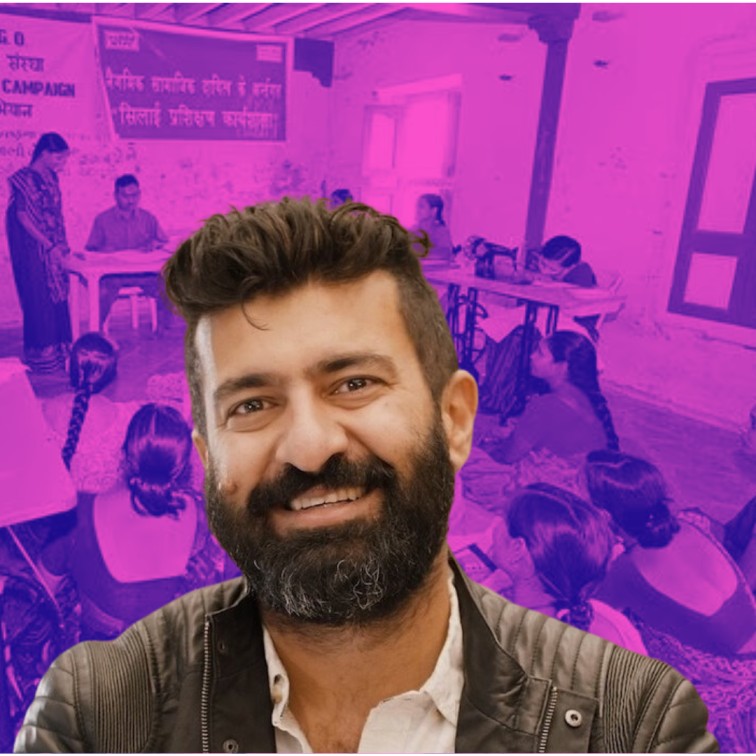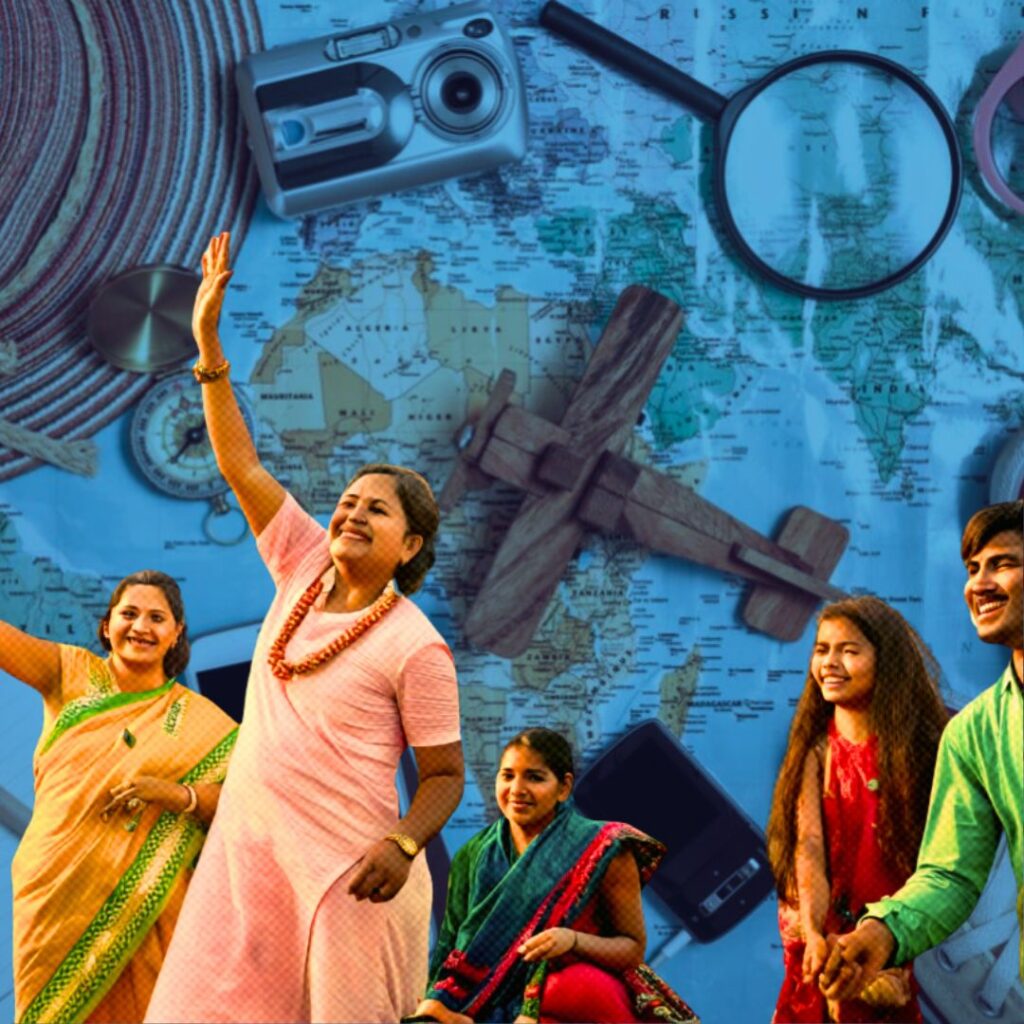Image Source: s-nbcnews
The bane of being among history’s most influential personalities is that every aspect of your life, ideologies and opinions is passionately scrutinized by countless individuals. These individuals can be professionals, well-versed and well-researched. But they can also be inexperienced or agenda-motivated propagandists who won’t think twice before spewing lies and half-truths by twisting facts.
Mohandas Gandhi was a monumental figure in world history. There is no requirement of an introduction to Gandhi. All of us have a fair background of his life and his contributions to the Indian independence movement and beyond. But because of his tall stature, his legacy has been corrupted with politics and polluted with falsehoods. Be it in the form of fake letters, misquoted speeches or Photoshopped pictures, Gandhi has become a whipping boy for many.
This article is not about Gandhi’s life or his contributions. This article targets the many myths that surround Gandhi. Though his life has been documented by hundreds of prolific writers – and he himself wrote extensively during his lifetime – he remains an elusive figure. There is also the factor of the politicization of Gandhi by politicians to pander to or procure vote banks. These aspects have led to many Indians vocally admonishing and baselessly loathing the man who is regarded as the father of the Indian nation.
It is best if the reader gets a basic summary of these myths and researches on the issues on credible sites or from books so that we can all have an uncorrupted, informed opinion.
___________________________________________
“Had it not been for Gandhi, India would’ve gotten independence way before 1947.”
The main argument here is that the Non-cooperation Movement could have liberated India in 1922 had Gandhi not called it off after the Chauri Chaura incident. It is highly questionable that Britain, a victor of the First World War, a colonial empire whose crown was the Indian subcontinent, would have let go of India in 1922, when the freedom was struggle was still scattered, comprised of only the upper crust of Indian society, and the INC was a tentative debate club. Hypothetically, had India become free in 1922, it would have meant curbing secessionist threats (because India in 1922 was a country of 562 princely states) with no unifying leader in the scene, facing the Great Depression as a young economy, resisting the influence of Stalin’s Russia in the 1930s, probably being pulled into the Second World War as a participant, and being forced to choose sides during the Cold War.
“Gandhi was the reason Bhagat Singh, Rajguru and Sukhdev Thapar were hanged.”
Bhagat Singh was one of the leading figures of the Indian Independence Movement. However, due to popular misconception and emotional, politically-driven rhetoric, some people blame Gandhi for Bhagat Singh’s hanging by the British. These are the same people who ignore or misquote the provisions of the Gandhi-Irwin pact, not seeing it in light of the Civil Disobedience Movement or the Round Table Conference. Gandhi’s bargaining space was limited. Though he procured the release of most political prisoners, the British refused to let go of Bhagat Singh and the others because they deemed their actions to be “violent” in nature and they wanted to set an example by killing Bhagat Singh.
Was there disagreement between Bhagat Singh and Gandhi? Definitely. They had widely opposing ideologies. But they also shared mutual respect for they both wanted freedom for Indians. Of Bhagat Singh’s revolutionaries, Gandhi wrote “These heroes had conquered the fear of death. Let us bow to them a thousand times for their heroism.” Gandhi never condoned violence. Blaming Gandhi for the martyrdom of Bhagat Singh is like blaming Barack Obama for the death of the American journalists at the hands of ISIS.
“Gandhi used his position to sexually exploit women.”
Gandhi’s experiments with sex are unique in that they are both poorly documented and well-documented. He wrote extensively about celibacy, and advised it to several of his well-wishers. Reports of his activities with his nieces have been extensively analyzed by many biographers. In his book on Gandhi, Jad Adams wrote:
“It was no secret that Mohandas Gandhi had an unusual sex life. He spoke constantly of sex and gave detailed, often provocative, instructions to his followers as to how to they might best observe chastity. And his views were not always popular; “abnormal and unnatural” was how the first Prime Minister of independent India, Jawaharlal Nehru, described Gandhi’s advice to newlyweds to stay celibate for the sake of their souls.”
In approaching this issue one must keep in mind that Gandhi was an eccentric character. For Gandhi, conquering carnal emotions was a way towards emancipation. His experiments with his adult neices were non-sexual and consensual in nature. We know of these experiments because Gandhi led a very open lifestyle, discussing his ventures with his followers. On this issue, Ramachandra Guha wrote the following:
“In the last year of his life, as communal riots erupted all over India, Gandhi thought it might have something to do with his own lack of moral purity. So he tested his celibacy afresh with two of his nieces.
The experiment was, admittedly, bizarre. Perhaps Gandhi used his authority to coerce the two young women into participating. Perhaps they were damaged by the experiment. Even so, against this one-off abuse of women’s rights one must set the Mahatma’s lifelong work for women’s emancipation. Gandhi campaigned against sati and child marriage. He urged women to shed the purdah and take to education. He encouraged women to participate in political movements in South Africa and India.”
In the end, it is probably best to not consider the personal lives of public people. Gandhi had his eccentricities, and if we consider every quirk and eccentricity of every leader in history, we will be left with no one in history to call a leader. Gandhi is an acclaimed moral authority, and judging him based on average human traits is redundant.
“Gandhi was the reason India was partitioned.”
This is an age-old argument that is as popular as it is untrue. The Partition of India, a bloody affair that involved religious extremism, political exploitation and a million corpses, was a complex affair with its roots in the 1920s. The Two Nation Theory was the child of the colonialists’ divide-and-rule policy. Basically, while religion and politics are very important components of the human experience individually, when you combine them together you get a toxic mix which causes genocides and Partitions. This deadly mix was what the Muslim League fed on, and what the Indian National Congress failed to save the subcontinent from. The Partition was one of history’s biggest tragedies, but saying the man responsible for it was the one who fought all his life for one, united India is illiterate. The British slyly let the tragedy unfold, the League fed on popular sentiments to gain political traction, and the Congress worsened the situation by being uncompromising and ignorant. Could Gandhi have done more? Mostly, yes, in spite of his diminishing political clout. But did he want the Partition to happen? Surely, no.
He vocally opposed the Partition of India. In one of his speeches he said, “We are not two nations … We in India have a common culture. In the North, Hindi and Urdu are understood by both Hindus and Muslims. In Madras, Hindus and Muslims speak Tamil, and in Bengal, they both speak Bengali and neither Hindi nor Urdu … [If] India is divided she will be lost forever. Therefore . . . if India is to remain undivided, Hindus and Muslims must live together in brotherly love, not in hostile camps organized either for defensive action or retaliation.”
Gandhi’s relationship with Bose, Nehru and Patel.
One of Gandhi’s biggest failures was the 1939 Tripura Congress session. Unity between Bose and Nehru was cracking due to internal politics and ideological differences, and Gandhi failed to reconcile the two leaders. Gandhi’s relationship with Bose is well-documented. It was one of tacit admiration for each other in spite of their ideological differences. Gandhi and Nehru is one of the most famous fellowships of the 20th century. This was mainly because they shared the same ideology and vision for India – with slight economy-related variations. Gandhi and Patel, again, had differences but shared mutual respect for one another. That Gandhi preferred Nehru as his political heir is no secret. In the face of Pakistan’s overt theocratic ideals, Gandhi envisioned Nehru to be the best choice for a secular, pluralistic and democratic India.
Bose’s impact on Indian history can hardly be overstated. After the founding of the INA, he moved quickly and achieved monumental feats. But though his methods were ideologically apprehensive to Gandhi, the two of them shared a bond of respect. In a letter to Bose, Gandhi wrote, “Though we have discussed sharp differences of opinion between us, I am quite sure that our private relations will not suffer in the least.”
“Gandhi was partial towards Pakistan, and Nathuram Godse was justified in assassinating him.”
As per the Partition plans, 20% of British India’s assets was to be given to Pakistan. The ₹75 crore India was to pay Pakistan post-Pakistan came in 2 installments. After the release of the initial ₹20 crore, the Nehru government withheld the remaining ₹55 crore after tribesmen from Pakistan invaded Kashmir. Meanwhile, Gandhi had managed to stop the bloodbath in riot-hit Bengal. He meant to go to Punjab, the state most affected by the Partition, and then Pakistan, but he stopped on the way in Delhi. The Capital had experienced a huge influx of Indian Muslims from riot-hit areas. Stating that he could not pacify the mobs in Punjab and Pakistan if the Indian government did not release the balance amount, and demanding protection for the refugees in Delhi, Gandhi went on a fast. The fast worked, but Gandhi made many enemies.
Again, it must be remembered that Gandhi was an eccentric figure. A universalist, for him it was not a question of war or Kashmir; it was one of ethics. Many of us may disagree with him – and maybe he was even wrong, but there is no leader of history who has not committed mistakes. And nothing justifies assassinating a person just because his philosophy is different from yours.
____________________________________________
The legacy of Gandhi is one of peace, cooperation and integrity. He was not only an important figure in history, but also an unlikely one. A thin, balding man wearing a loincloth and armed with a walking stick crusading non-violently against the might of the British Empire, a vast colonial exploit on whom the sun would supposedly never set.
But Gandhi was more than just the poster boy for anti-colonialism; he was a philosopher, writer and social activist whose works have transpired into non-violent revolutions and civil rights movements around the world over the years. From the American civil rights movement of the 1960s to the Chinese pro-democracy protests in 2014; from the anti-communism protests in Eastern Europe in the 1980s to the Arab Spring which altered Middle-eastern politics, Gandhi’s ideas have toppled regimes and inspired millions. His persona was flawed – but whose isn’t? His message is universal and remains relevant to this day. He was a man larger than life, and no amount of propaganda and false claims can ever change that.












